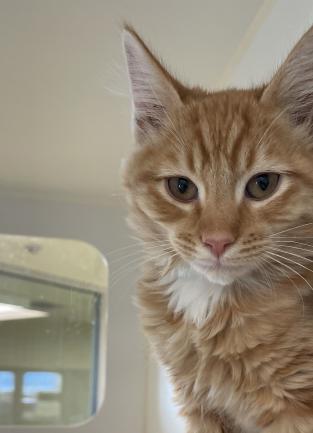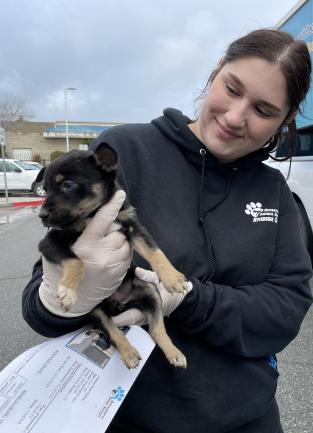KEEPING YOUR PETS SAFE DURING HOLIDAY CELEBRATIONS
As winter holiday festivities begin, Riverside County Department of Animal Services (RCDAS) would like to share our top ten safety tips to keep your pets safe.
-
Delicious dangers. Chocolate, fatty, sweet and spicy foods as well as alcohol and turkey or chicken bones can all be dangerous to pets.
-
Watch out for wires. Wires can deliver potentially lethal electric shocks and batteries, if punctured, can cause burns to the mouth and throat of your pet.
-
Mistletoe, Lilies and Poinsettias, oh no! They can cause gastrointestinal upset and cardiovascular problems if ingested.
-
Rockin’ around the Christmas tree. Christmas trees poses potential threats to our furry companions. Secure your tree tightly so there is no chance it can tip over. Make sure the tree water is covered and/or inaccessible to curious pets. Lastly, ingested tinsel can cause severe problems.
-
Be cautious of candles. Curious paws and happy wagging tails could knock them over, potentially burning your pet or starting a fire.
-
Loud noises. Music, fireworks, celebratory poppers or noisemakers can scare our companions. Create a safe space for your pet to retreat to get some quiet time. Keep them at home and away from celebrations.
-
Talkin’ trash. Make sure you take out the trash or secure the lids on any garbage cans that may have food, broken decorations or any other holiday hazards inside.
-
Broken snow globes. Snow globes are made with ethylene glycol, the same chemical used in antifreeze, which is highly toxic to all pets.
-
Accessorize your pet. Ensure your animal is wearing a collar, dog license, and identification tag so if he gets lost, he can be returned to you. Dog licenses can be purchased through our website.
10. Keep your pets indoors. Confirm gates and doors stay closed and your pet is inside at all times.
Have a great holiday season, and make sure your pet does too with this top ten list!
If your pet gets lost visit www.rcdas.org to see pictures of animals at the shelter and reports of found animals so that we can get them back home to you.
If you suspect your pet has been exposed to any poisonous substances, contact your veterinarian or call Animal Poison Control Center (APCC) at (888) 426-4435 immediately.







